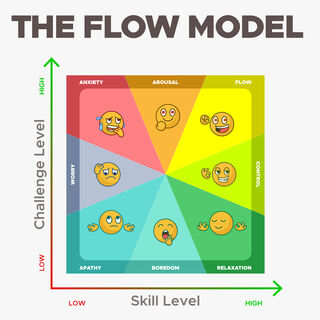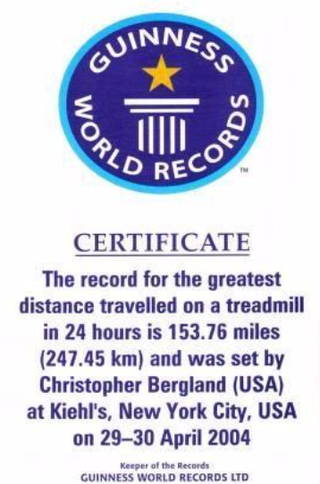
New research suggests that international students studying abroad who were isolated and alone during COVID-19 lockdowns experienced less loneliness and more happiness if they could lose themselves in meaningful activities that required focus and created flow states. These findings (Chang, Dattilo, & Huang, 2022) were published on April 4 in the peer-reviewed journal Leisure Sciences.
"Loneliness is associated with depression and other mental health challenges. By engaging in meaningful activities that demand focus, people can reduce loneliness and increase momentary happiness," co-author John Dattilo of Penn State said in a news release.
Anecdotally, I know that when I was a lonely student, pouring my energy into skill-based challenges—such as dedicating my free time to marathon training—was a remedy for the severe perceived social isolation I felt during the loneliest period of my life, which occurred during another global pandemic (HIV/AIDS) that first took hold when I was in high school.
Want to Create Flow? Gradually Increase Challenge Levels to Match Improving Skill Levels
As a gay teen in the early 1980s, I found myself isolated and alone at a homophobic boarding school in Wallingford, Connecticut. During my first and second years at prep school, I struggled with crippling anxiety, depression, and not self-determined solitude (NSDS). I also developed a substance use disorder during adolescence, which made me feel even more "sad and hollow" inside.
Luckily, just as the spring semester of my junior year was ending, I stumbled on the power of flow to dissolve loneliness and stopped self-medicating with recreational drugs and alcohol. It was June 1983 when I accidentally discovered that pouring myself into something challenging that required laser-like focus and skill was a way to reduce feelings of loneliness.
For me, the motivation to start pursuing what I now know as "flow" by becoming a long-distance runner was sparked by seeing a matinee of the '80s pop culture phenomenon known as Flashdance on a big cinematic screen. The grit, gutsiness, and joie de vivre of that movie's protagonist—who was a Pittsburgh welder turned world-class dancer—were contagious.
"First, when there's nothing but a slow glowing dream that your fear seems to hide deep inside your mind. All alone, I have cried silent tears full of pride. In a world made of steel, made of stone." —"Flashdance...What a Feeling" by Giorgio Moroder, Irene Cara, and Keith Forsey (1983)
I know it's cliché, but watching Jennifer Beals' character metamorphosize and break free from a bleak steel town by "taking her passion and making it happen" inspired me. Armed with a mixtape of the Flashdance soundtrack blasting on my Walkman, I cut off my t-shirt sleeves and romanticized the grueling challenge of becoming an ultra-distance runner.
All I wanted to do with my leisure time in the summer of '83 (when the AIDS pandemic started decimating people in the LGBTQ community) was sweat like a "Maniac" while visualizing myself breaking free and experiencing eudaimonia in an MTV-inspired version of my otherwise fear-filled and socially isolated daily life.
THE BASICS
Through trial and error, I figured out that the key to creating this euphoric feeling was constantly pushing against my limits by upping the challenge and running a little bit faster and farther as my endurance and stamina gradually increased.
As a teenager in the early '80s, I didn't know about the concept of "flow." Nor did I know that Mihaly Csikszentmihalyi had figured out in the 1970s that the secret to dialing up this elusive state and losing oneself in what he called the "flow channel" is to constantly nudge up against one's skill level by slightly increasing the degree of challenge and finding a sweet spot between boredom and anxiety (Csikszentmihalyi, 1975).
I did know that losing myself in a so-called "flow channel" made me feel less lonely. Creating flow states on my own also made my solitude feel self-determined (SDS). I wanted to be alone in "the zone" and chose to spend solitary time pursuing flow states every day because it made me feel good. (See, "Motivations for Solitude Explain Why Loners Love Being Alone.")
Loneliness Essential Reads

In 2004, my lifelong pursuit of "frictionless flow" state experiences and what I call superfluidity led to breaking a Guinness World Record by running six back-to-back marathons during a 24-hour fundraiser for an HIV/AIDS nonprofit organization.
Flow State Experiences Helped People Reduce Loneliness During COVID-19 Lockdowns
The latest (2022) research by Chang, Dattilo, and Huang found that international students studying abroad who weren't able to maintain face-to-face contact with their social support networks during pandemic lockdowns experienced less loneliness if they pursued a daily activity that created flow during their free time.
The researchers discovered that those who experienced less loneliness during the pandemic tended to spend their leisure time pursuing relatively challenging activities that required both concentration and skill.
"Flow can be achieved by engaging in mental or physical activities that we value and that require us to concentrate fully to use our skills," Dattilo said in a news release. He adds that the best way for people to achieve a state of flow during their leisure time is to find an activity they enjoy that requires a good deal of skill and demands concentration but isn't so difficult that it seems overwhelming or impossible.
According to Dattilo, "Some activities never induce flow, while other activities may or may not, depending on the individual." He notes that there's nothing wrong with surfing the internet or watching television during one's free time. However, these activities typically don't induce a state of flow because they don't involve a meaningful challenge that requires focused attention or mastering a skill.
"Learning which activities might enable someone to enter a state of flow requires asking questions and listening," Dattilo concludes. "People tend to thrive on healthy engagement and challenge. My collaborators and I hope this research will help people live fuller, happier, healthier lives."
"flow" - Google News
April 17, 2022 at 09:22PM
https://ift.tt/OjSTqdM
Want Less Loneliness? Lose Yourself in the Pursuit of Flow - Psychology Today
"flow" - Google News
https://ift.tt/JjFVZ5H
https://ift.tt/Cw7vja8
Bagikan Berita Ini














0 Response to "Want Less Loneliness? Lose Yourself in the Pursuit of Flow - Psychology Today"
Post a Comment